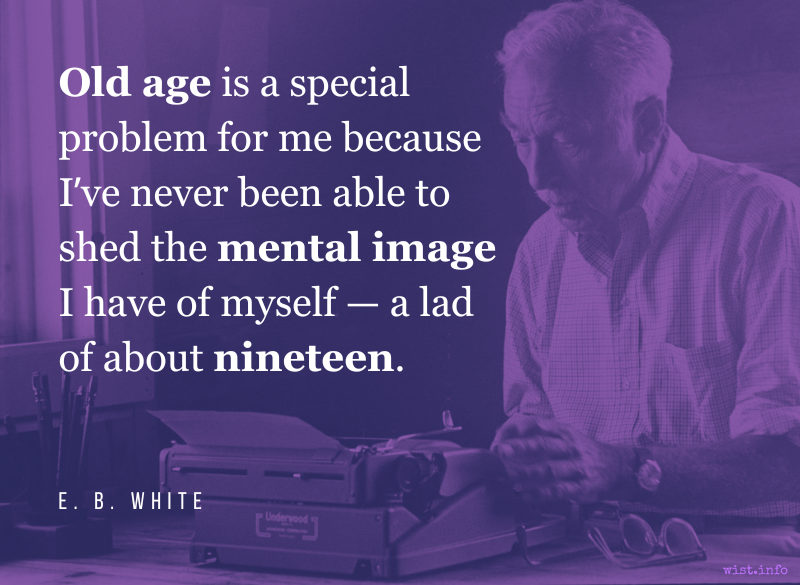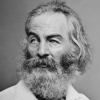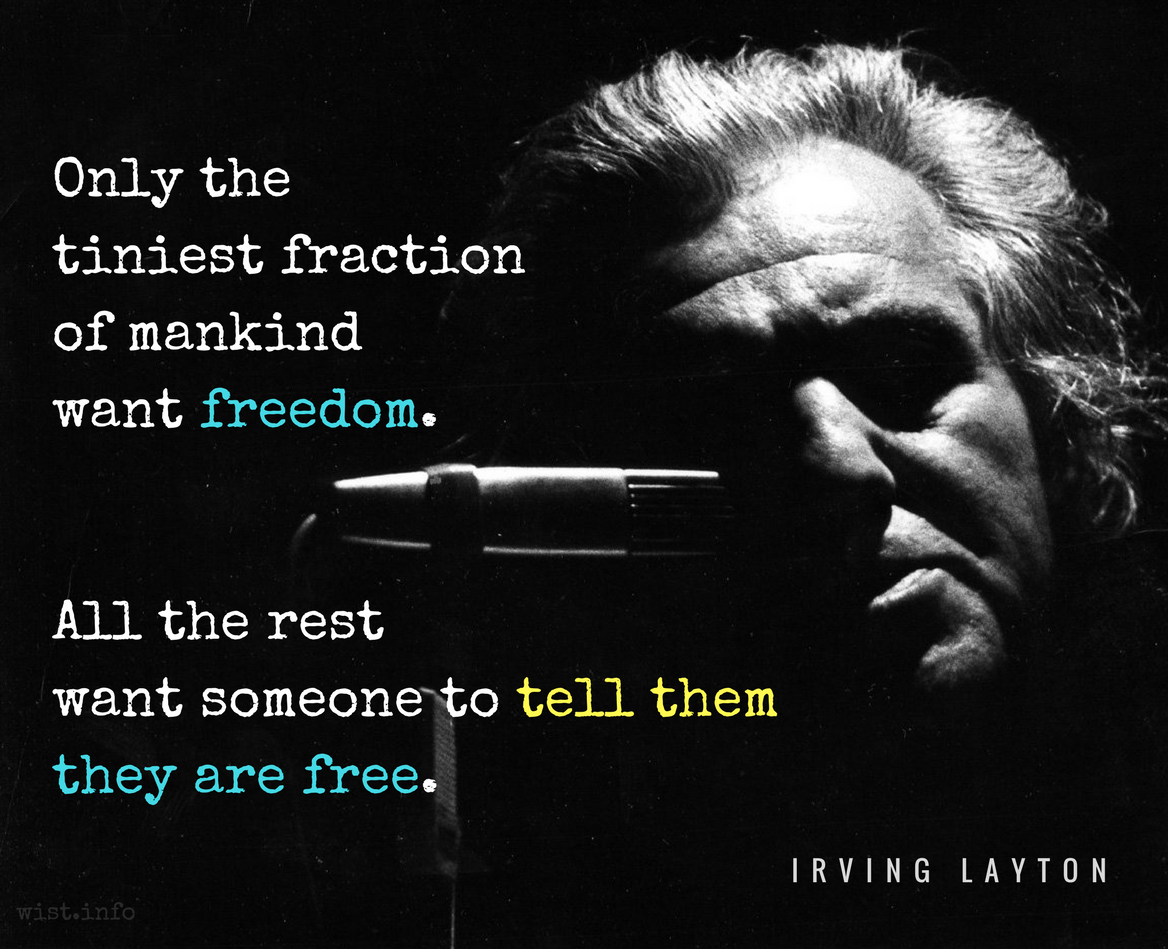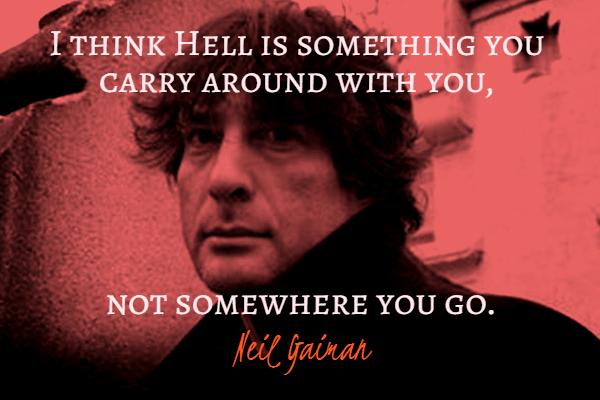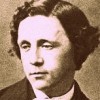Fear comes from uncertainty. When we are absolutely certain, whether of our worth or worthlessness, we are almost impervious to fear. Thus a feeling of utter unworthiness can be a source of courage.
Eric Hoffer (1902-1983) American writer, philosopher, longshoreman
The Passionate State of Mind, Aphorism 87 (1955)
(Source)
Quotations about:
self-image
Note not all quotations have been tagged, so Search may find additional quotes on this topic.
Usbek, it seems to me that we always judge things by secretly relating them to our own concerns. I am not surprised that black men envision the devil as being a brilliant white color, and that they picture their gods as being black as coal — nor that certain peoples picture Venus as having breasts that hang down to her thighs — nor that all idolaters have always pictured their gods in human form, ascribing to them all their own predilections. It has been well said that if triangles had a god, they would imagine him as having three sides.
[Il me semble, Usbek, que nous ne jugeons jamais des choses que par un retour secret que nous faisons sur nous-mêmes. Je ne suis pas surpris que les nègres peignent le diable d’une blancheur éblouissante et leurs dieux noirs comme du charbon ; que la Vénus de certains peuples ait des mamelles qui lui pendent jusqu’aux cuisses ; et qu’enfin tous les idolâtres aient représenté leurs dieux avec une figure humaine, et leur aient fait part de toutes leurs inclinations. On a dit fort bien que, si les triangles faisoient un dieu, ils lui donneroient trois côtés.]
Charles-Lewis de Secondat, Baron de Montesquieu (1689-1755) French political philosopher
Persian Letters [Lettres Persanes], Letter 59, Rica to Usbek (1721) [tr. MacKenzie (2014)]
(Source)
The triangles reference is often attributed directly to Montesquieu, though it's referenced here as having another origin. It is sometimes cited as a Jewish or Yiddish proverb.
Some early editions leave out the triangle metaphor altogether, thinking it alludes to the Trinity.
See also Voltaire.
(Source (French)). Alternate translations:
It is my Opinion, Usbek, that we never judge of Things but with a private View to our selves. I am not surprised that the Negroes shou'd paint the Devil of the most glaring Whiteness, and their Gods as black as a Coal; that the Venus of some Nations shou'd have Breasts hanging down to her very Thighs; and lastly, that all Idolaters have represented their Gods with a Human Figure, and given them all their own Inclinations. It has been said with good Reason that if the Triangles were to make a God they wou'd give him three Sides.
[tr. Ozell (1736), No. 57]
It appears to me, Usbek, that we never judge of things but with a private view to ourselves. I do not wonder that the Negroes paint the devil in the most glaring whiteness, and their gods as black as a coal; that the Venus of some nations should be represented with breasts pendent to her thighs; nor indeed that all idolaters have made their gods of human figures, and have ascribed to them all their own passions.
[tr. Floyd (1762)]
It seems to me, Usbek, that our opinions are always influenced by a secret application to ourselves. I am not surprised that Negroes paint the devil with a complexion of dazzling whiteness, and their gods as black as coal; that the Venus of certain races has breasts that hang down to her thighs; and finally, that all idolaters have represented their gods in the likeness of men, and have ascribed to them all their own passions. It has been very well said, that if triangles were to make to themselves gods, they would give them three sides.
[tr. Davidson (1891)]
It seems to me, Usbek, that our judgment of things is always controlled by the secret influence they have had on our own actions. I am not surprised that the negroes paint the devil with a face of dazzling whiteness, and their gods as black as coal; that the Venus of certain tribes has breasts that hang down to her thighs; and, in fine, that all nations have represented their gods in the human form, and have supposed them to be imbued with their own passions. It has been very well said that if triangles were to make a god for themselves, they would give him three sides.
[tr. Betts (1897)]
It seems to me, Usbek, that we judge things only by applying them secretly to ourselves. I am not surprised that Negroes paint the devil in dazzling white and their gods in carbon black; or that the Venus of certain peoples has breasts that hang to her thighs; or, finally, that all idolaters have represented their gods in human shape and assign to them all their own attributes. It is well said that if triangles were to create a god, they would describe him with three sides.
[tr. Healy (1964)]
It seems to me, Usbek, that we never judge anything without secretly considering it in relation to our own self. I am not surprised that black men depict the devil as brilliantly white, and their own gods as coal-black, that the Venus of certain peoples has breasts that hang down to her thighs, and, in short, that all idolaters have depicted their gods with human faces, and have endowed them with their own propensities. It has been quite correctly observed that if triangles were to make themselves a god, they would give him three sides.
[tr. Mauldon (2008), No. 57]
A neurotic is someone who’s afraid to see himself as he’s afraid others see him.
Mignon McLaughlin (1913-1983) American journalist and author
The Second Neurotic’s Notebook, ch. 10 (1966)
(Source)
Old age is a special problem for me because I’ve never been able to shed the mental image I have of myself — a lad of about nineteen.
E. B. White (1899-1985) American author, critic, humorist [Elwyn Brooks White]
“E. B. White: Notes and Comment by Author,” interview by Israel Shenker, New York Times (1969-07-11)
(Source)
On his 70th birthday.
There is no arena in which vanity displays itself under such a variety of forms as in conversation.
[Il n’est point d’arène où la vanité se montre sous des formes plus variées que dans la conversation.]
Germaine de Staël (1766-1817) Swiss-French writer, woman of letters, critic, salonist [Anne Louise Germaine de Staël-Holstein, Madame de Staël, Madame Necker]
Germany [L’Allemagne], Part 1, ch. 11 “Of the Spirit of Conversation” (1813)
(Source)
(Source (French)).
Sometimes misattributed to Marguerite Gardiner (Lady Blessington), due to this quote (there attributed to de Stael) being included in the Preface to R. R. Madden, The Literary Life and Correspondence of the Countess of Blessington, Vol. 1 (1855).
If men knew how to blush at their own actions, how many crimes, and not only those that are hidden, but those that are public and well known, would never be committed!
[Si l’homme savait rougir de soi, quels crimes, non seulement cachés, mais publics et connus, ne s’épargnerait-il pas!]
Jean de La Bruyère (1645-1696) French essayist, moralist
The Characters [Les Caractères], ch. 11 “Of Mankind [De l’Homme],” § 151 (11.151) (1688) [tr. Van Laun (1885)]
(Source)
(Source (French)). Alternate translations:
If men could blush at their own actions, how many sins, publick and private, would they save by it?
[Bullord ed. (1696)]
If Men knew how to blush at their own Actions, how many Crimes, publick and private, would they save by it!
[Curll ed. (1713)]
If Men could blush for themselves, how many Sins, public and private, would they save by it!
[Browne ed. (1752)]
If a man knew how to blush at his own actions, what crimes, not only secret but public and overt, would he not spare himself!
[tr. Stewart (1970)]
The difference between narcissism and self-love is a matter of depth. Narcissus falls in love not with the self, but with an image or reflection of the self — with the persona, the mask. The narcissist sees himself through the eyes of another, changes his lifestyle to conform with what is admired by others, tailors his behavior and expression of feelings to what will please others. Narcissism is eye trouble, voluntary blindness, an agreement to keep up appearances (hence the importance of “style”) and not to look beneath the surface.
Sam Keen (b. 1931) American author, professor, philosopher
The Passionate Life, ch. 8 (1983)
(Source)
The most dangerous men on earth are those who are afraid that they are wimps.
James Gilligan (b. c. 1936) American psychiatrist and author
Violence: Reflections on a National Epidemic, ch. 3 (1997)
(Source)
Oh me! Oh life! of the questions of these recurring,
Of the endless trains of the faithless, of cities fill’d with the foolish,
Of myself forever reproaching myself, (for who more foolish than I, and who more faithless?)
Of eyes that vainly crave the light, of the objects mean, of the struggle ever renew’d,
Of the poor results of all, of the plodding and sordid crowds I see around me,
Of the empty and useless years of the rest, with the rest me intertwined,
The question, O me! so sad, recurring — What good amid these, O me, O life?Answer.
That you are here — that life exists and identity,
That the powerful play goes on, and you may contribute a verse.Walt Whitman (1819-1892) American poet
“O Me! O Life!” Leaves of Grass, Book 20 “By the Roadside” (1867 ed)
(Source)
Nothing I accept about myself can be used against me to diminish me.
Audre Lorde (1934-1992) American writer, feminist, civil rights activist
“Eye to Eye: Black Women, Hatred, and Anger,” Sister Outsider: Essays and Speeches (1984)
(Source)
People become wedded to their beliefs, because the validity of those beliefs reflects on their competence, commends them as authorities, and rationalizes their mandate to lead. Challenge a person’s beliefs, and you challenge his dignity, standing, and power.
Steven Pinker (b. 1954) Canadian-American cognitive psychologist, linguist, author
The Better Angels of Our Nature, ch. 4 (2011)
(Source)
It never ceases to amaze me: we all love ourselves more than other people, but care more about their opinion than our own.
Marcus Aurelius (AD 121-180) Roman emperor (161-180), Stoic philosopher
Meditations, Book 12, ch. 4 [tr. Hays (2002)]
(Source)
Alt. trans.:
- "I have often wondered how each man should love himself more than any other; and yet make less account of his own opinion concerning himself, than of the opinions of others." [tr. Foulis (1742)]
- "I have often wondered, whence it comes to pass, that although every one loves himself more than he does any other man, he should yet pay a greater regard to the opinion of other people concerning him than to his own." [tr. Graves (1792)]
- "I have often wondered how it comes to pass that everybody should love themselves best, and yet value their neighbor's opinion about themselves more than their own." [tr. Collier (rev.)]
- "I have often wondered how it is that every man loves himself more than all the rest of men, but yet sets less value on his own opinion of himself than on the opinion of others." [tr. Long (1862)]
- "How is it that every person loves themselves more than any other person, yet still gives more value to the opinions of others than the opinion they hold of themselves?" [tr. McNeill (2019)]
We pick our friends not only because they are kind and enjoyable company, but also, perhaps more importantly, because they understand us for who we think we are.
Alain de Botton (b. 1969) Swiss-British author
The Consolations of Philosophy, ch. 4 “Consolation for Inadequacy” (2000)
(Source)
A man is what he is, not what men say he is. His character no man can touch. His character is what he is before his God and his Judge; and only himself can damage that. His reputation is what men say he is. That can be damaged; but reputation is for time, character is for eternity.
Tact is the ability to describe others as they see themselves.
Mary Pettibone Poole (fl. 1930s) American aphorist
A Glass Eye at a Keyhole, “Made in Manhattan” (1938)
(Source)
ROWLAND: I think Hell is something you carry around with you, not somewhere you go.
Neil Gaiman (b. 1960) British author, screenwriter, fabulist
Sandman, Book 4. Season of Mists, # 25 “Chapter 4” (1991-04)
(Source)
Charles Rowland to Edwin Paine (the "Dead Boy Detectives"). Paine disagrees in a following panel: "I think maybe Hell is a place. But you don't have to stay anywhere forever."
It is a sad fate for a man to die
Too well known to everybody else,
And still unknown to himself.[Illi mors gravis incubate
Qui notus nimis omnibus
Ignotus moritur sibi.]
I fear one lies more to one’s self than to anyone else.
Too many of us look upon Americans as dollar chasers. This is a cruel libel, even if it is reiterated thoughtlessly by the Americans themselves.
Albert Einstein (1879-1955) German-American physicist
“What Life Means to Einstein,” Interview with G. Viereck, Saturday Evening Post (26 Oct 1929)
(Source)
This passage is not included in the chapter of George Sylvester Viereck, Glimpses of the Great (1930) which was built from this interview.
“I quite agree with you,” said the Duchess; “and the moral of that is — ‘Be what you would seem to be’ — or, if you’d like it put more simply — ‘Never imagine yourself not to be otherwise than what it might appear to others that what you were or might have been was not otherwise than what you had been would have appeared to them to be otherwise.'”
Our credulity is greatest concerning the things we know least about. And since we know least about ourselves, we are ready to believe all that is said about us. Hence the mysterious power of both flattery and calumny.
Eric Hoffer (1902-1983) American writer, philosopher, longshoreman
The Passionate State of Mind, Aphorism 128 (1955)
(Source)
Whenever we proclaim the uniqueness of a religion, a truth, a leader, a nation, a race, a part or a holy cause, we are also proclaiming our own uniqueness.
Eric Hoffer (1902-1983) American writer, philosopher, longshoreman
The Passionate State of Mind, Aphorism 37 (1955)
(Source)
Those blush to lose a conquering game,
And fain would peril life for fame:
These bring success their zeal to fan;
They can because they think they can.[Hi proprium decus et partum indignantur honorem
ni teneant, vitamque volunt pro laude pacisci;
hos successus alit: possunt, quia posse videntur.]Virgil (70-19 BC) Roman poet [b. Publius Vergilius Maro; also Vergil]
The Aeneid [Ænē̆is], Book 5, l. 229ff (5.229-231) (29-19 BC) [tr. Conington (1866)]
(Source)
Of the crews of the two remaining ships racing at the funeral games of Anchises: Cloanthus' Scylla which is closing on the finish line; Mnestheus' Pristis which has come up from last place and may yet take the lead. (Cloanthus wins the race by offering a sacrifice to the sea gods.)
(Source (Latin)). Alternate translations:
These their new glory, honours got despise,
Unless they keep it, and to gaine the prize
Would sell their lives; success feeds them; they may
Because they think they can obtain the day.
[tr. Ogilby (1649)]
Resolv'd to hold their own, they mend their pace,
All obstinate to die, or gain the race.
Rais'd with success, the Dolphin swiftly ran;
For they can conquer, who believe they can.
[tr. Dryden (1697)]
These are fired with indignation, lest they should lose their possession of glory and honor they have won; and they are willing to barter life for renown. Those success cherishes; they are able because they seem to be able.
[tr. Davidson/Buckley (1854)]
These scorn to lose the honour that is their own, the glory in their grasp, and would sell life for renown; to these success lends life; power comes with belief in it.
[tr. Mackail (1885)]
These, thinking shame of letting fall their hardly-gotten gain
Of glory's meed, to buy the praise with very life are fain;
Those, fed on good-hap, all things may, because they deem they may
[tr. Morris (1900), l. 228ff]
These scorn to lose their vantage, stung with shame,
And life is wagered willingly for fame.
Success inspires the hindmost; as they dare,
They do; the thought of winning wins the game.
[tr. Taylor (1907), st. 31, l. 274ff]
The leaders now with eager souls would scorn
to lose their glory, and faint-hearted fail
to grasp a prize half-won, but fain would buy
honor with life itself; the followers too
are flushed with proud success, and feel them strong
because their strength is proven.
[tr. Williams (1910)]
These think it shame not to keep the honour that is theirs, the glory they have won, and would barter life for fame: those success heartens; strong are they, for strong they deem themselves.
[tr. Fairclough (1916)]
On the Scylla
They would give their lives to hold their place, they have won it,
The glory and honor are theirs already, almost;
And Mnestheus’ men take courage from their nearness;
They can because they think they can.
[tr. Humphries (1951)]
One crew was compelled by the shame of losing a prize they had all but
Gained for their own, and would give their lives for its glory; the other
Was fired by success -- they could do it because they believed they could do it.
[tr. Day-Lewis (1952)]
Cloanthus' crewmen
now think it a disgrace to fail to keep
the fame and honor they themselves have won,
and they would give their very lives for glory;
but Menestheus' men are strengthened by success,
they have the power because they feel they have it.
[tr. Mandelbaum (1971), l. 301ff]
One crew fought off the shame of losing honor
Theirs already, glory won; they'd give
Their lives for fame; but luck empowered the others
Who felt that they could do it, and so could.
[tr. Fitzgerald (1981), l. 294ff]
Cloanthus and his men on the Scylla saw the honour as theirs by right. They had already won the victory and had no intention of giving it up. They would rather have lost their lives than lose the glory. Mnestheus and his men on the Pristis were feeding on success. They could win because they thought they could.
[tr. West (1990)]
The former crew are unhappy lest they fail to keep
the honour that is theirs and the glory already
in their possession, and would sell their lives for fame.
the latter feed on success: they can because they think they can.
[tr. Kline (2002)]
One crew, stung by the shame of losing victory now
with glory won, would trade their lives for fame.
But Mnestheus and his crew, fired by their success,
can just about win the day because they think they can.
[tr. Fagles (2006), l. 256ff]
One crew would hate to lose the glory of an honor all but one. They'd trade their lives for victory. The others were encouraged by success. Belief in victory spurred them on.
[tr. Bartsch (2021)]




